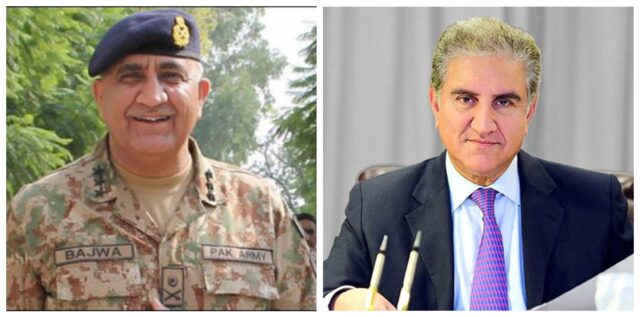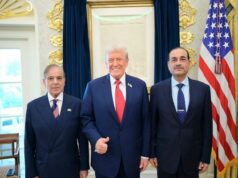NEW DELHI: In a week that saw the fluttering to life of the Pakistan Muslim League (Nawaz), a political party that had been all but written off because of the indifferent health of its founder Nawaz Sharif, a rift out in the open between Pakistan and its long-time mentor Saudi Arabia could presage the end of Prime Minister Imran Khan’s dream run.
Imran’s rank mishandling of the economy, compounded by the Covid crisis denting his reputation, the all-powerful Pakistan military is finally beginning to question whether the man they had backed to front the civilian dispensation was past his sell-by date.
The alarm bells had already begun going off at military headquarters with Imran Khan’s misguided push to raise the Kashmir issue at every international forum, and Pakistan being cold-shouldered every time. Islamabad’s promotion of terror as a means of keeping India off balance—indisputably proven with the Pulwama attack, details of which were shared with both Riyadh and Abu Dhabi—was part of the reason that Saudi Arabia, the UAE and other Arab states at the Organization of Islamic Cooperation (OIC) have been chary of giving it a platform as they did before; India’s growing economic heft and the potential for greater partnerships, being the other.
On Sunday night, army chief Gen. Qamar Bajwa is reported to have flown to Riyadh to pour salve on the Saudi wound. Accompanying Bajwa on that secret flight out was reportedly Lt Gen Faiz Hameed, the head of Inter-Services Intelligence. What that salve will be is the question.
Imran Khan’s power-drunk attempt to throw punches at the Saudis was verbalized by his foreign minister Shah Mahmood Qureshi, all but threatening to launch an alternative to the Organisation of Islamic Countries, that would see Turkey and Malaysia—and in all probability, Saudi Arabia’s arch enemy Iran—helming the new body; an alternative Umma that would take up the issue of India’s clampdown in Kashmir. Except, neither Turkey nor Malaysia, let alone Iran has the deep pockets that the Saudis and the Emiratis have. And now, with the newfound alliance between the UAE and Israel made official, Pakistan, in attempting to drive a wedge between Saudi Arabia and the other Islamic countries, could find itself increasingly isolated.
Imran Khan’s misguided political advisers see Kashmir as an easy crutch, something that would take the ordinary Pakistani’s mind off the state’s inability to pull it out of the economic stranglehold it finds itself in. He couldn’t be more wrong. Shah Mahmood’s dramatic forays to the border and his repeated taunts of the Saudi monarchy is being seen in some quarters as him trying to position himself as a perfect successor to Imran, although some say he will be the one whom Bajwa will offer up as a sacrifice. Either way, he will probably be replaced with a strident supporter of the army, possibly minister Shireen Mazari who on Sunday, publicly, attacked the Pakistan Foreign Office—run by Shah Mahmood Qureshi—on its handling of Pakistan’s Kashmir policy. Qureshi, who used to be in the PPP, must know his days are numbered.
More importantly, Pakistan may once more be at a critical juncture as this avatar of a civilian-fronted military government runs out of steam. The political class who draw their power from the people, juxtaposed, once again, against those backed and propped up by the military in this unsustainable spell of an undeclared martial law.
In a sign, the military establishment recognized the danger posed by the resurrection of a political force they had managed to bludgeon into silence thus far, here’s what an insider revealed. Days before PML (N) leader Maryam Nawaz was due to appear before the National Accountability Bureau, her personal phone was flooded with non-stop messages from officials telling her there was no need for her to be personally present at the proceedings.
Back in London, her father and former Prime Minister Nawaz Sharif, ailing but having lost none of his political acumen, understood the messages for what they were—the Pakistan Army didn’t want a political spectacle unfolding at its doorstep with Nawaz’ feisty daughter’s uncanny ability to draw crowds wherever she went, at the centre of it all.
Last Tuesday’s violent clash between authorities and the hundreds of PML(N) supporters who converged on the Lahore offices of the NAB, complete with tear gas and lathis and stones being thrown at the vehicle that Maryam Nawaz was in, was everything Nawaz could have hoped for. Panicked NAB officials asked her to leave. Instead, she got out of her vehicle and told the cheering throng—and the TV cameras—that she wouldn’t leave until the NAB recorded her statement right there and then. It was clear who had the upper hand. And it wasn’t NAB.
The Maryam Nawaz incident, dismissed by the ruling Imran Khan government as a storm in a tea cup, cannot be seen in isolation, separate from the political churn in Pakistan. For Nawaz’ party workers, straining at the leash for months together, the Lahore protests provided a perfect comeback, however small, to the political frontlines. It’s unlikely to end there.
To the PML(N) strategists in their London war room, the realization has hit home that their months of silence against the establishment that had put paid to street protests of any kind had led their huge following in Punjab and northern Sindh to believe that their leader was a spent force. Nawaz’s absence from the country and his virtual retreat from the political fray, unconfirmed reports of a rift within, with his brother Shahbaz’s reported closeness to the establishment, all adding to the story of a political leadership that had lost its stomach for a fight.
That may no longer be the case.
The PML(N) party top brass is readying to push Maryam Nawaz back into the forefront as it steps up moves to confront the government and the military. And while until now, Nawaz has allowed his party leaders at home to call the shots, he is talking about returning and leading an agitation from the front and expose the army. In weeks, if not months. Interestingly, some say, he’s in touch with the Saudis, who have come to his aid in the past, offered him asylum when Gen. Musharraf overthrew him in 1999.
The Nawaz camp is sensing a shift in public opinion against the government, which no longer enjoys the same level of popularity that it did among young people that it did in 2018. Prime Minister Khan’s anti-corruption election winning plank has been gravely undermined by the economic collapse and the growing debt which now stands at over $250 billion. Imran’s criticism of the Nawaz government which he blames for Pakistan’s economic ills was focused on debt. Yet, Pakistan has now taken an emergency loan of $1.39 billion from the International Monetary Fund, $200 billion from the World Bank, while seeking another $2 billion from the World Bank and more from the ADB.
A long-time critic of the military’s role in Pakistan, academic Ayesha Siddiqa has blown the lid off the army’s ineptitude by listing the number of retired military officers who actually helm government bodies. The growing anger on the ground over the Imran government’s mishandling of the Covid epidemic—closely overseen by the army—has few in Pakistan believing the numbers that are being projected of coronavirus victims.
Another of Imran Khan’s bêtes noires, Maulana Fazlur Rehman, is dusting off plans to mount a fresh round of street protests, replicating the lockdown that brought the capital to a standstill in 2019. The Maulana who heads the Jamiat-Ulema-Islam (Fazlur) has reached out to both the PML(N) and the Pakistan Peoples Party, led by Bhutto scion Bilawal Bhutto Zardari. An agitation by a joint political opposition may be some months away as yet. But by all indications, the last thing Bajwa will countenance is for the army’s reputation as the guardian of Pakistan to be sullied by a civilian. Where that leaves Imran Khan is the big question. Will he do more than just sacrifice Shah Mahmood Qureshi?
(The author is an independent journalist. Views expressed in this article are personal.)





